It’s pretty unlikely that you’ll get bitten by a snake as the old adage that they’re more scared of you than you are of them is generally true.
However, avoiding snakes is important, especially if you’re afraid of them, or if you’re travelling with dogs or children.
Here is a quick and easy guide to avoiding snakes and what to do if you get bitten:
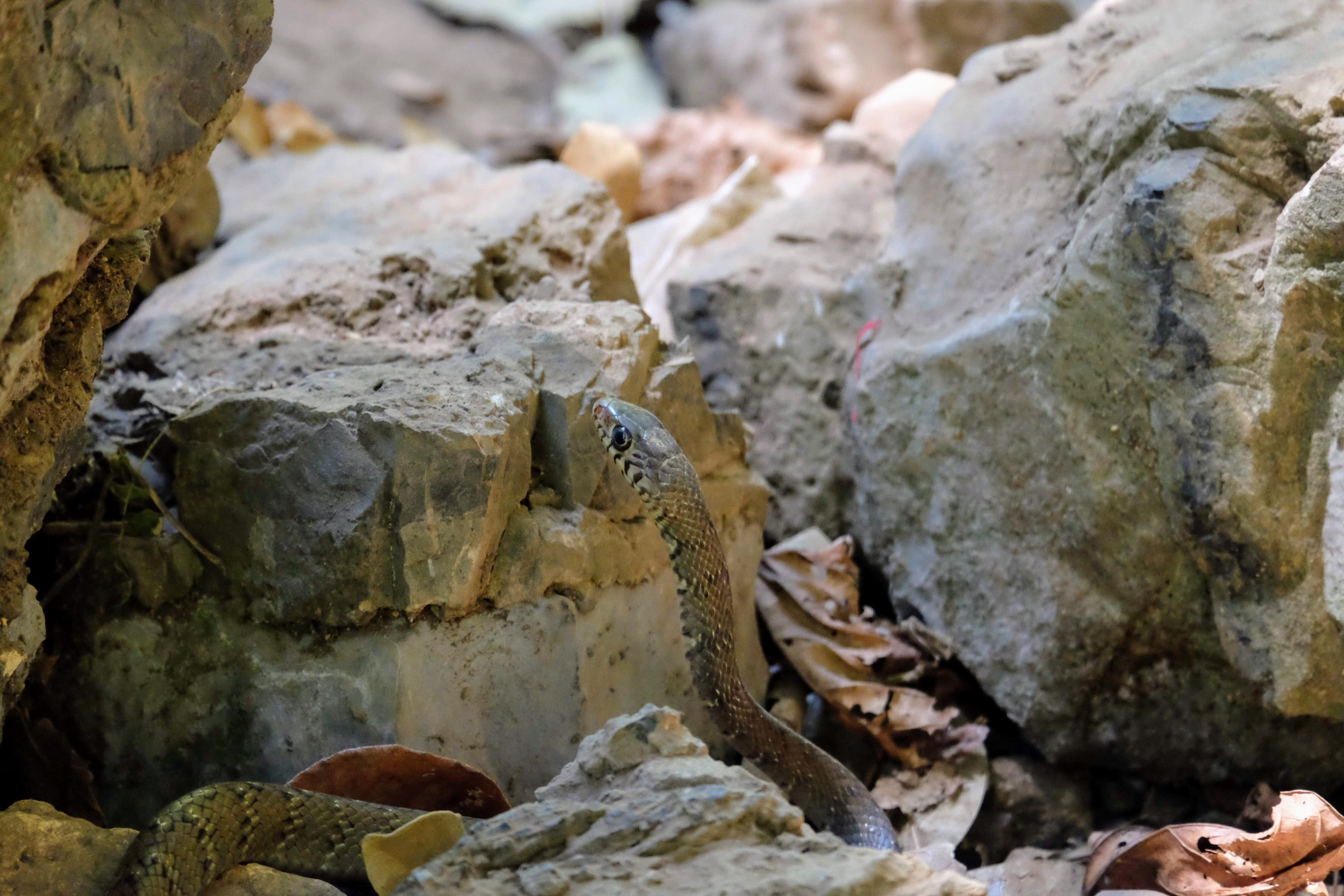
I love seeing snakes like this one that we came across while hiking up Mount Zwegabin in Myanmar. It is much more fun to watch snakes from a distance than to stumble across them accidentally and run a small risk of being bitten.
Before you go away, it’s worth learning about the poisonous snakes in the area that you’re visiting, as some places have much more than others. You can even save images on your phone for reference purposes.
The world’s most venomous snakes live in Asia, predominantly in India and Australia, but some of the worst offenders are also found in Latin America and in African countries. The good news is that out of 600 venomous snakes, only 200 can really do damage to humans.
How to avoid snakes and being bitten by them:
- Wear robust footwear when walking in places when you won’t see your feet (like long grass) and protect your legs.
- Avoid tall grasses if you can or use a tall stick to scare animals away before you walk.
- Don’t stick your hands in any holes without checking them thoroughly first.
- Check your boots/clothing before putting them on.
- Be careful in trees and bushes which is where snakes like to hide.
- Don’t touch dead snakes as some still have the bite reflex.
- When camping, pitch your tent away from trees and bushes where snakes live.
- Snakes love to sleep under tents so be very careful when packing up your stuff.
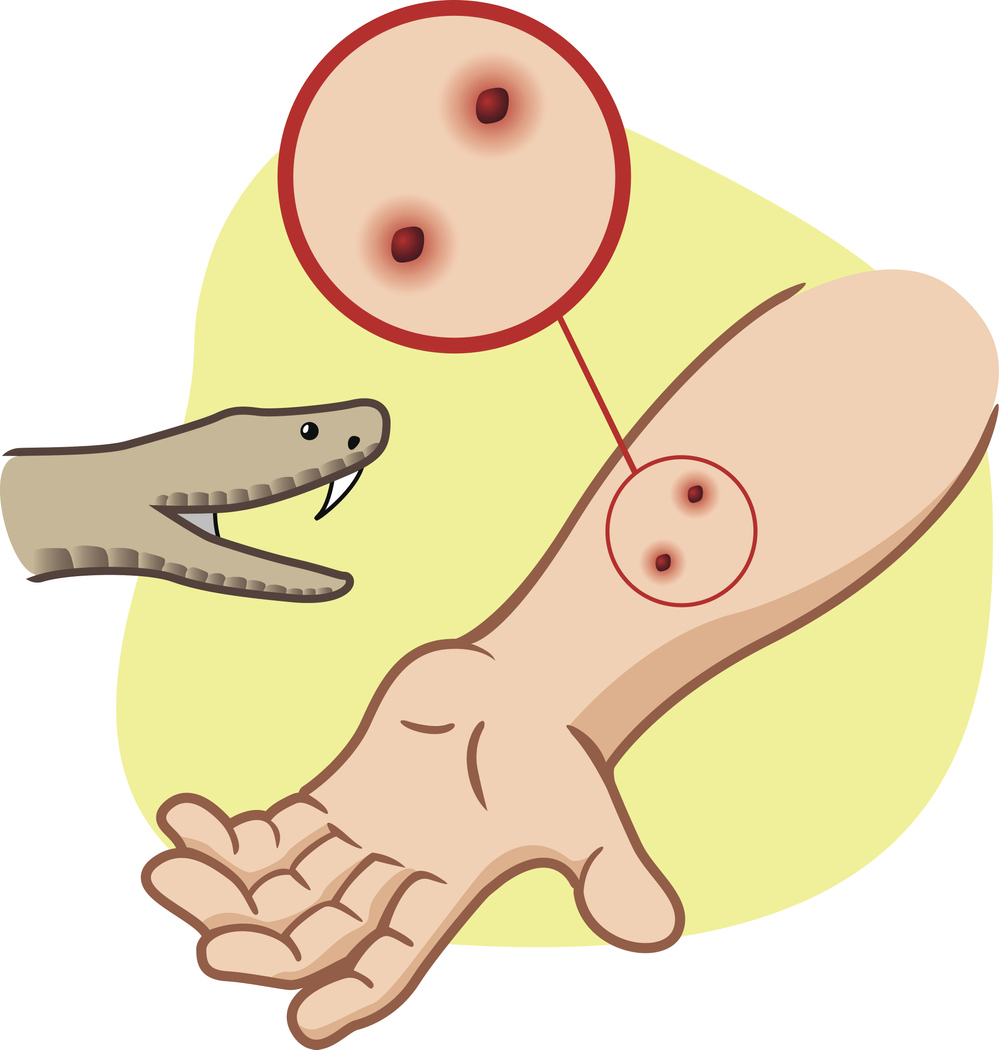
Make sure that you have decent insurance while travelling, in case you need medical attention and keep their number on you.
The priority when someone is bitten is to get them professional care and for them to administer antivenin as soon as possible as the shock can be deadly. In the meantime, bear these points in mind.
What to do if you get bitten by a snake:
- Call an ambulance, or a rescue helicopter. Make sure you have the numbers on you or a phone, satellite phone or radio.
- Don’t wash it or try to take out the venom in any way.
- Remove jewellery or tight clothing as it may swell.
- Keep the bite below the heart as that will slow the venom flow.
- Apply a pressure immobilisation bandage.
- Don’t put ice on the wound as it makes the venom harder to remove.
- Avoid panicking or calm the person down as this speeds up heart rate and venom flow.
- Take a picture of the snake if possible.
- Reject offers of traditional medicine as it may make it worse.
- Draw a circle around the bite if possible.
- If a snake spits in an eye, irrigate thoroughly preferably with water but milk, beer or urine can also be used to avoid blindness.
For a full first aid guide to dealing with snakebites then consult the Fit for Travel website.
Have you come across many snakes on your travels? Do you have any snake avoidance tips? Let me know in the comments below!
Pin this for later:
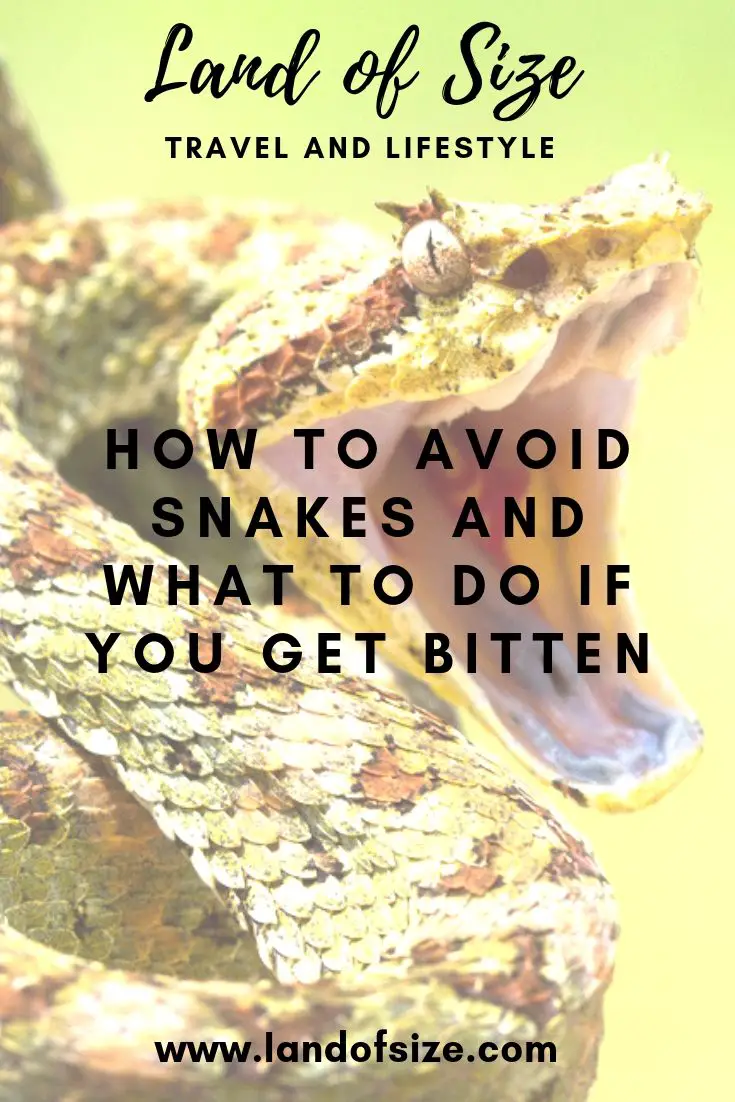
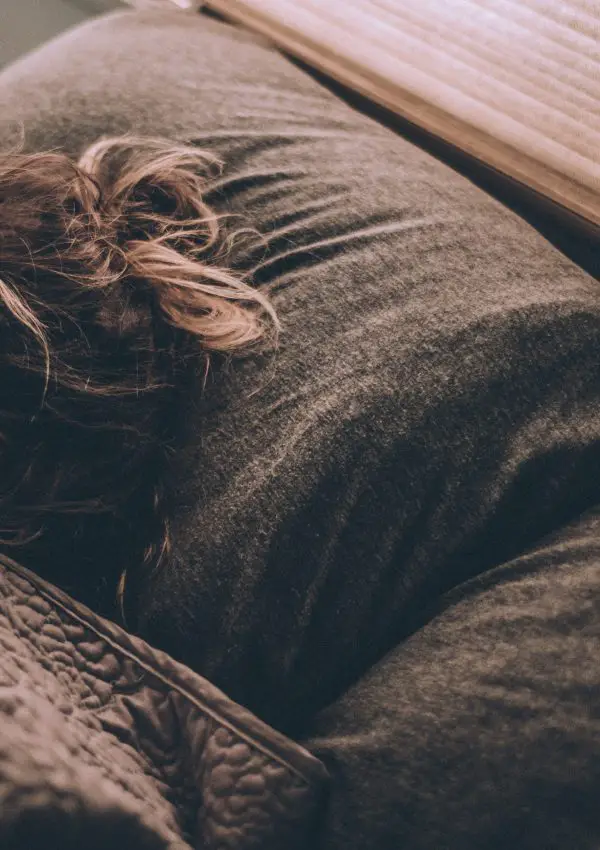


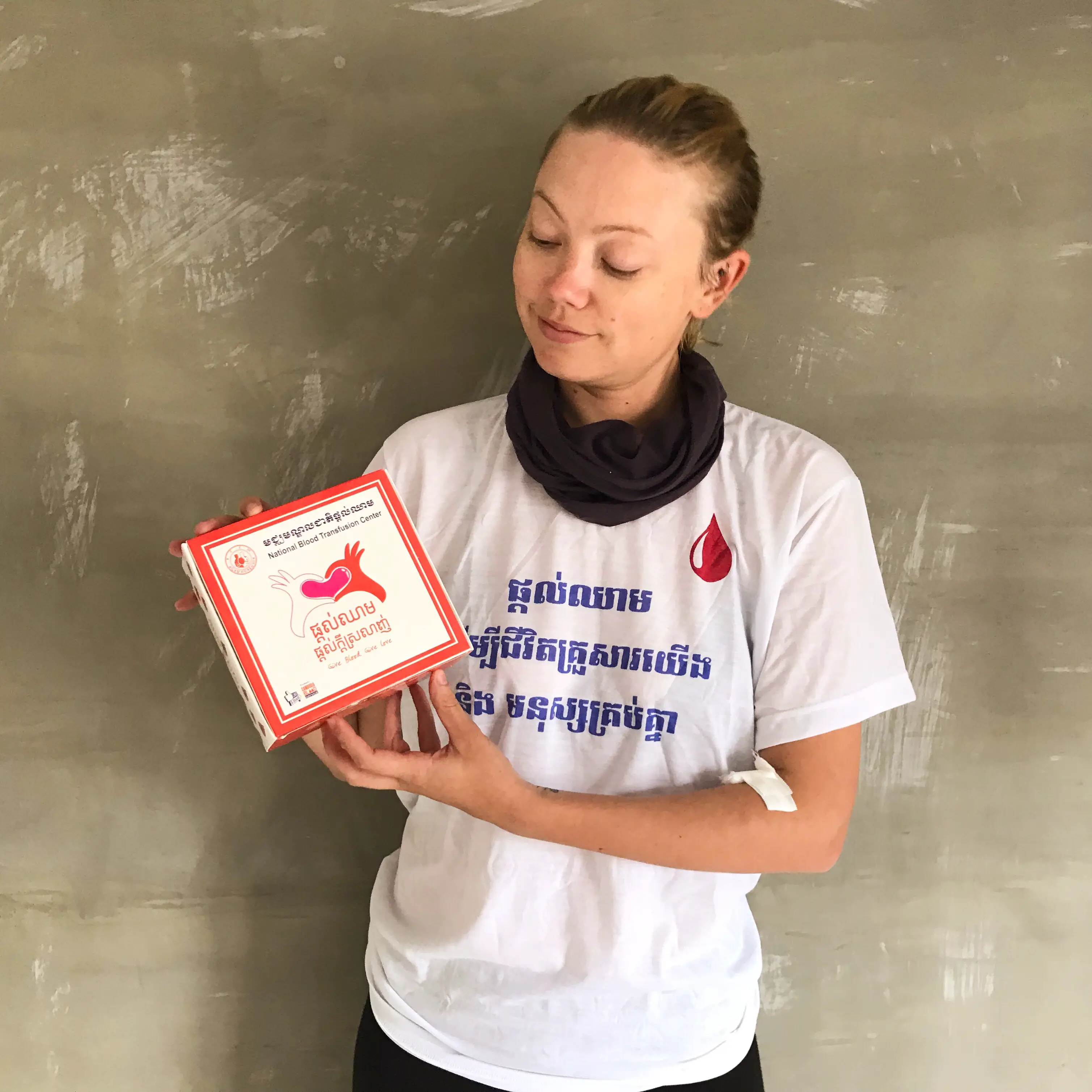

Leave a Reply